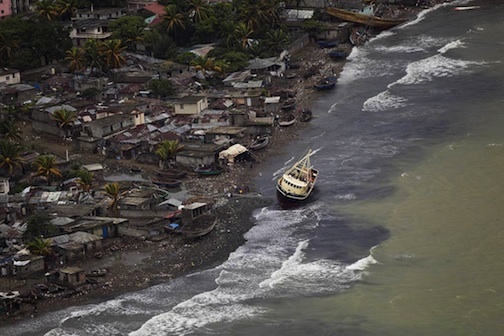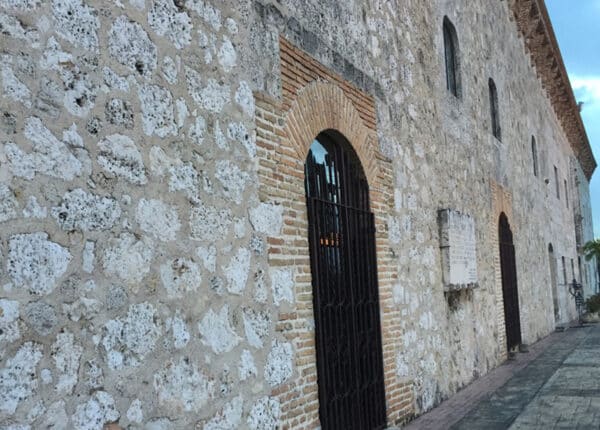Haiti “Extremely Susceptible” to Drug Trafficking: Report
Above: Haiti’s northwest coast (UN Photo/Logan Abassi)
By the Caribbean Journal staff
While Haiti’s 2010 earthquake led to a significant drop in trafficking in the country, the country remains “extremely susceptible” to drug trafficking in the near future, according to a report from US Senators Dianne Feinstein and Chuck Grassley.
The report released this week by the United States Senate Caucus on International Narcotics Control, which described a range of Caribbean security challenges, found that efforts to support Haiti’s counter narcotics fight should accompany reconstruction aid.
Haiti’s devastating earthquake led to a temporary lull in drug trafficking in the country, with a “marked decrease in the amount of narcotics transiting the country,” according to the report.
In 2009, approximately 11,050 kilograms of cocaine transited Haiti; in 2011, the number fell to just 3,685 kilograms, according to data from the Drug Enforcement Agency and the State Department.
“Although these decreases in trafficking are positive, the reality is that drug traffickers were affected by the destruction of infrastructure in Haiti,” the report said. “Without proper roads or maintained airstrips, traffickers’ inability to access the country has been severely limited.”
In 2011, there were reportedly seven drug flights into Haiti, compared to 21 in 2009.
In the same year, US President Barack Obama identified Haiti as one of four countries that were “major drug transit countries” in the region.
The apparent decrease came after US law enforcement officials expressed fears in 2010 of an increase in trafficking after the earthquake.
Haiti’s Hispaniola neighbour, the Dominican Republic, is the Caribbean’s primary drug hub. Approximately 3 percent of cocaine en route to the US transits the island as a whole, according to the report.
But the relative decrease after the earthquake leaves Haiti in an unsteady position.
“As the Haitian government rebuilds following the earthquake, drug traffickers may again utilize the new infrastructure to their advantage,” the report said. “An increase in clandestine drug flights and maritime drug movements is likely in the coming years.”
The report also addressed the issue of extradition, saying the caucus “strongly supports the extradition of drug kingpins to the United States.”
Haiti was mentioned as one of three countries (including the Dominican Republic and Suriname) that do not have an agreement to extradite their own nationals to the United States.
“It could be helpful for the Dominican Republic, Haiti and Suriname to formally allow for the extradition of their own nationals to the United States,” the report found.







